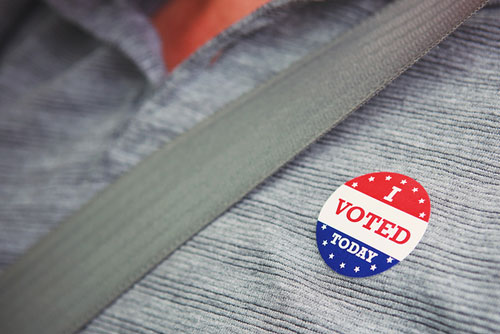
Voting is a major obligation and right for citizens, which is why some states mandate that employees get time off for voting.
The Society for Human Resource Management notes that there is no federal law that requires employers to give workers time off to vote. However, many states have rules; and in states without rules, SHRM recommends that businesses give employees two hours of paid time off to vote if there is not ample time to vote outside their work hours. Some companies even close their businesses on Election Day.
Some businesses might require that employees give advance notice if they need to take time off to vote. But in general, experts advise being as flexible as possible. SHRM quotes Bryan Stillwagon, an attorney with Sherman & Howard in Atlanta: “Companies with the happiest and most-engaged employees recognize that positive morale comes from doing more than what is required.”
What are the state rules?
These can vary widely. In New York, employers must give their workers three paid hours off to vote. However, these hours must be taken at the beginning or end of a shift, unless an employer agrees otherwise. Employees must give their employers two days’ notice of their intention to take time off.
California is similar to New York, but only two hours must be given. Oregon has an extensive vote-by-mail system, so time off is not required or even necessary. An unspecified amount of time is required in Texas, unless employees have at least two hours outside their work schedule to vote.
State rules change frequently, with little notice. Indeed, experts have noted that both companies and workers are often ignorant of the rules.
Finally, everyone should know that the rules noted above were accurate as of Election Day 2018 but might change as future elections come up. This is especially true in states where advanced voting or voting by mail initiatives make time-off provisions less necessary. Multistate companies can simplify their situation by applying the most liberal state’s rules across the board.
The bottom line is that as Election Day approaches, companies should review the rules with their states’ agencies and at the very least meet their local regulations. Contact us to learn more.
Posted February 2020 – Copyright 2020
Disclaimers:
This information is offered with the understanding that Paytime, Inc. is not engaged in rendering legal, accounting, or other professional services. This information is meant to provide general and summary information only. The subject matter is not specific to any company, individual or industry and none should be implied. No attorney-client relationship or consultant-client relationship has been created and no legal or other professional advice is implied nor inferred. If legal, accounting, consulting or other professional advice is needed, those services should be acquired from a licensed professional. In no event will Paytime, its agents or employees be liable to you for anyone else for any decision made or action taken in reliance on this information.


